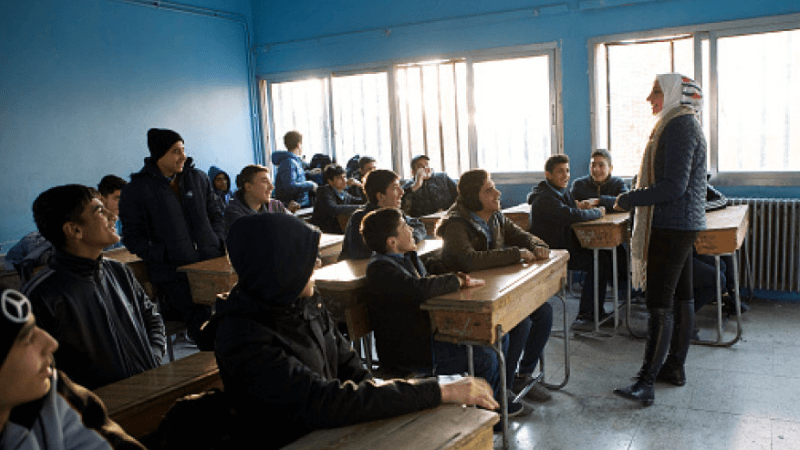Syrians Return to Schools After One Week of Assad’s Downfall

Syrians are going back to school with an increased feeling of freedom one week after the Assad regime’s surprise overthrow. People experience a range of feelings now that rebels are in control like joy at their newfound freedoms, sorrow over years of oppression and a mixture of optimism and concern for the future.
After 13 years of a civil war that claimed hundreds of thousands of lives, Ahmad al-Sharaa, the country’s new de facto leader has a huge task ahead of him in rebuilding Syria. Millions of refugees continue to live in camps outside of Syria, the economy was destroyed by international sanctions and cities were blasted to pieces.
Officials said most schools throughout the nation will start on Sunday, the first day of the working week in most Arab countries. However, several parents did not take their children to school owing to uncertainty about the scenario.
As Syria begins to rebuild, its neighbors and other international countries are still negotiating a new stance on the country, a week after the Assad regime which was supported by Iran and Russia collapsed.
War has torn families apart, former inmates are traumatized by their experiences and many detainees remain unaccounted for. The economy has collapsed, poverty is pervasive and inflation and unemployment are high. Corruption is a part of everyday life. Despite this, Syria remains divided and isolated after fifty years under Assad’s control. However, at this period of transition many people are ready to discover a new way ahead.
Sharaa, also known by his rebel name Abu Mohammed al-Jolani is the leader of Hayat Tahrir al-Sham (HTS), the Islamist militia that deposed Assad last week. HTS is a former al-Qaeda affiliate that has been declared a terrorist organization by various states and is subject to United Nations sanctions. UN Syria envoy Geir Pedersen said on Sunday that he hoped for a quick end to the sanctions to promote economic recovery.




